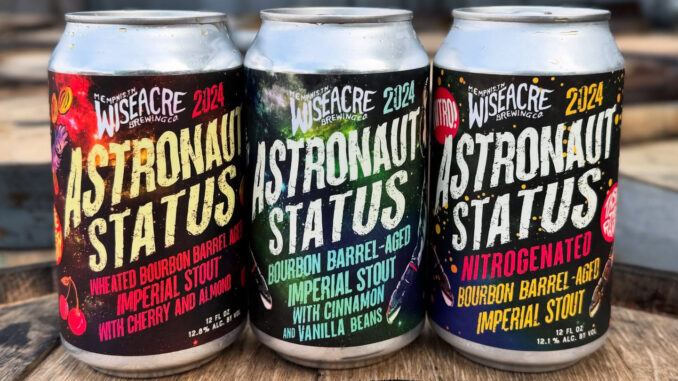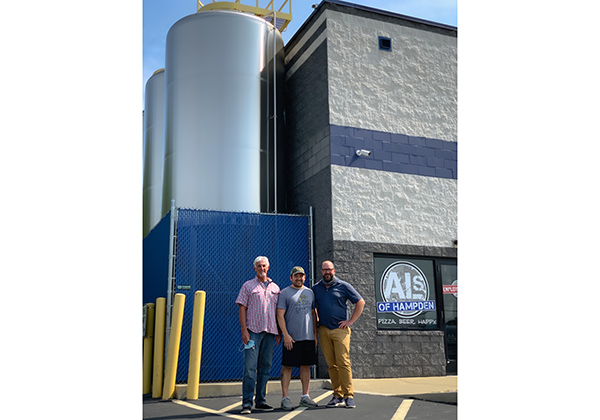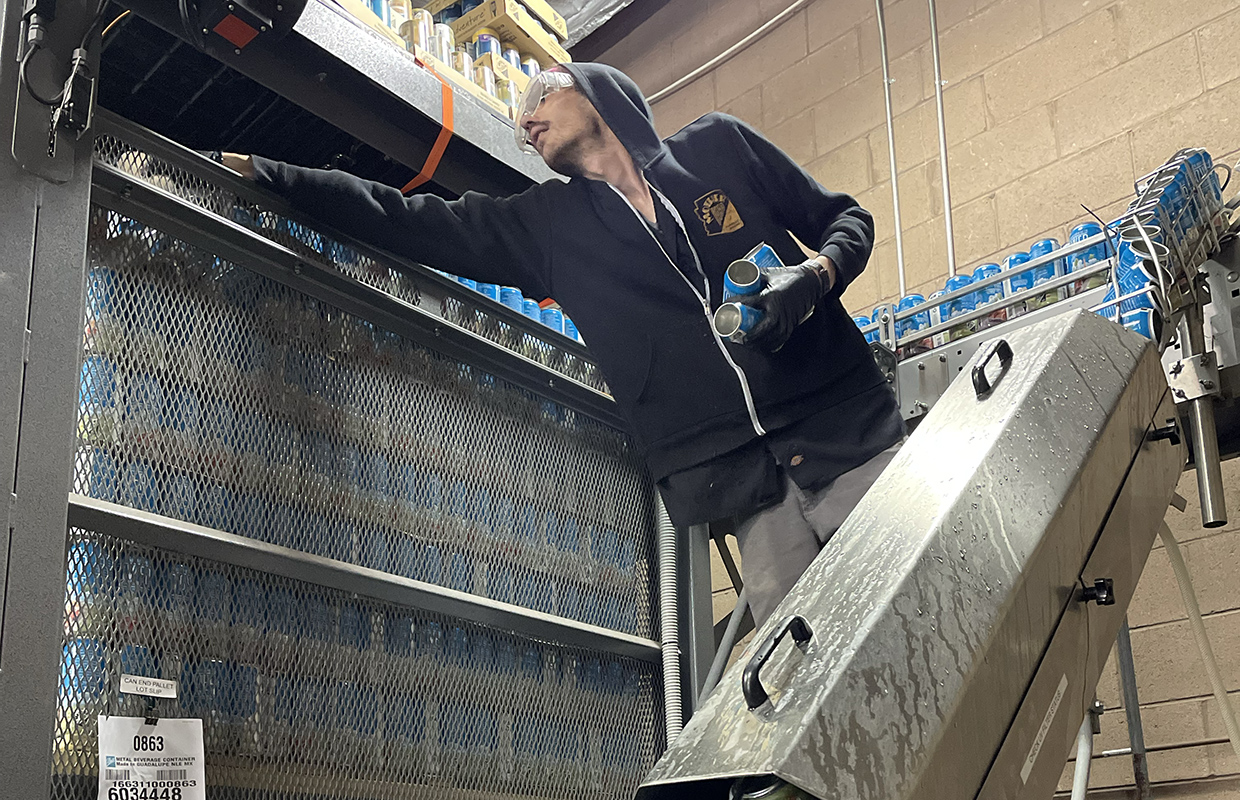
Wiseacre has built its reputation on Lagers, with its Tiny Bomb Pilsner acting as the Memphis brewery’s flagship and a major driver of growth. But each winter, Wiseacre steps away from its core lineup to release Astronaut Status, a Bourbon Barrel-Aged Imperial Stout brewed with cinnamon and vanilla. While this beer accounts for only about one-thousandth of Wiseacre’s annual production, it shows how an annual specialty release can serve as a valuable complement to a brewery’s main business strategy.
Astronaut Status debuted in December 2014, just months after Wiseacre opened, and quickly gained traction. At the time, there were few beers like it in the Southeast, and the combination of high alcohol, dessert-like notes and a memorable name made it stand out.
“It took off the first year we made it,” co-founder and Brewmaster Davin Bartosch said. “We wanted to thread the needle on boozy, drinkable, sweet and unique.”
While being “raised” in brewing by working with Pete Crowley at Rock Bottom in Chicago from 2008-2009, Bartosch said they were constantly working on Bourbon Barrel-Aged beer. So when he and his brother Kellan opened Wiseacre in Memphis, Davin brought his experiences and learnings into putting beer in wood.
“I felt like the vanilla/cinnamon combination of horchata would be a nice Imperial Stout, so that is what Astronaut Status became,” he told Brewer.
The stout, aged for 11 months in Woodford Reserve Kentucky Bourbon barrels with cinnamon sticks and vanilla beans, offers rich notes of bourbon, vanilla and cinnamon layered over chocolate and coffee. While it departs drastically from Wiseacre’s lighter, lower-ABV Lagers, its limited nature and bold profile have made it a staple of the brewery’s seasonal calendar.
The beer’s success underscores a larger lesson for breweries of any size that diversifying into a different small-batch release of any kind can create excitement without disrupting your core production. Bartosch indicated that the beer was always meant to be fun for both the brewing team and consumers. Its annual release has become a taproom highlight, drawing crowds and creating a sense of tradition.
“I think the Imperial Stouts of today are very different from the ones we make,” he said. “We are trying to make something drinkable, even at high ABVs. Too many Imperial Stouts are so thick, they require more than one person to finish.
“We wanted to thread the needle on boozy, drinkable, sweet, and unique.”
From a business standpoint, Astronaut Status demonstrates how even a small-volume brand can strengthen consumer connection. Its limited supply sells out each year, while variants — from rum and maple barrel treatments to fruit-infused whiskey-aged editions — keep the concept fresh. Although the beer hasn’t directly led to new collaborations or major revenue streams, its branding, packaging and name have reinforced Wiseacre’s reputation for creativity.
Importantly, Wiseacre has kept the beer’s scale consistent.
“We have always made the same amount of it every year, and then we sell it all,” Bartosch said. That balance helps maintain demand and prevents the brewery from straining resources that remain focused on its Lagers.
Wiseacre’s experience shows that flagship beers need not be the only driver of loyalty. Specialty releases like Astronaut Status can carve out space for experimentation, showcase brewing expertise and build a tradition that consumers look forward to each year. It can be supporting the company rather than distracting from the main business.







Be the first to comment